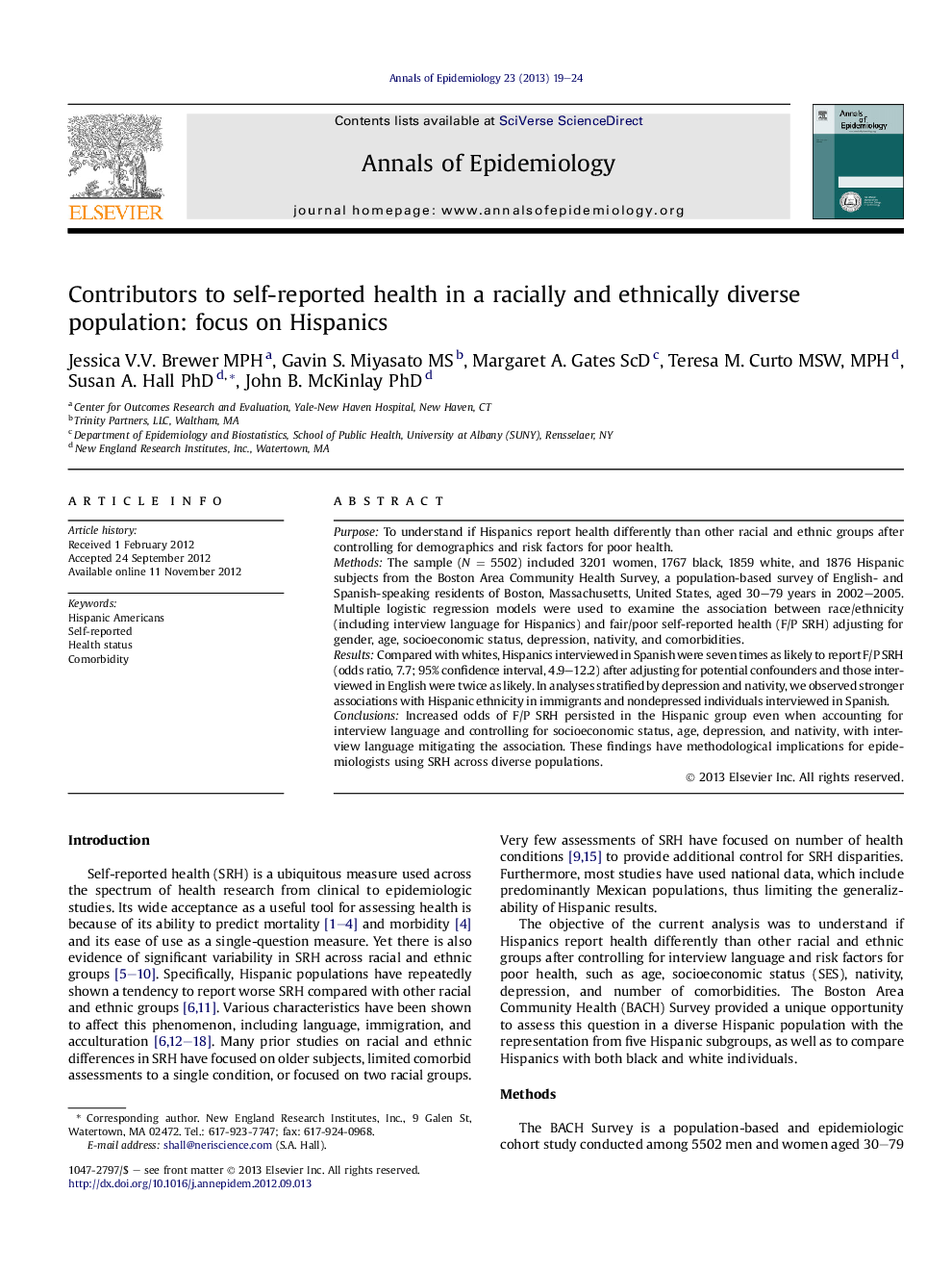| Article ID | Journal | Published Year | Pages | File Type |
|---|---|---|---|---|
| 3444175 | Annals of Epidemiology | 2013 | 6 Pages |
PurposeTo understand if Hispanics report health differently than other racial and ethnic groups after controlling for demographics and risk factors for poor health.MethodsThe sample (N = 5502) included 3201 women, 1767 black, 1859 white, and 1876 Hispanic subjects from the Boston Area Community Health Survey, a population-based survey of English- and Spanish-speaking residents of Boston, Massachusetts, United States, aged 30–79 years in 2002–2005. Multiple logistic regression models were used to examine the association between race/ethnicity (including interview language for Hispanics) and fair/poor self-reported health (F/P SRH) adjusting for gender, age, socioeconomic status, depression, nativity, and comorbidities.ResultsCompared with whites, Hispanics interviewed in Spanish were seven times as likely to report F/P SRH (odds ratio, 7.7; 95% confidence interval, 4.9–12.2) after adjusting for potential confounders and those interviewed in English were twice as likely. In analyses stratified by depression and nativity, we observed stronger associations with Hispanic ethnicity in immigrants and nondepressed individuals interviewed in Spanish.ConclusionsIncreased odds of F/P SRH persisted in the Hispanic group even when accounting for interview language and controlling for socioeconomic status, age, depression, and nativity, with interview language mitigating the association. These findings have methodological implications for epidemiologists using SRH across diverse populations.
